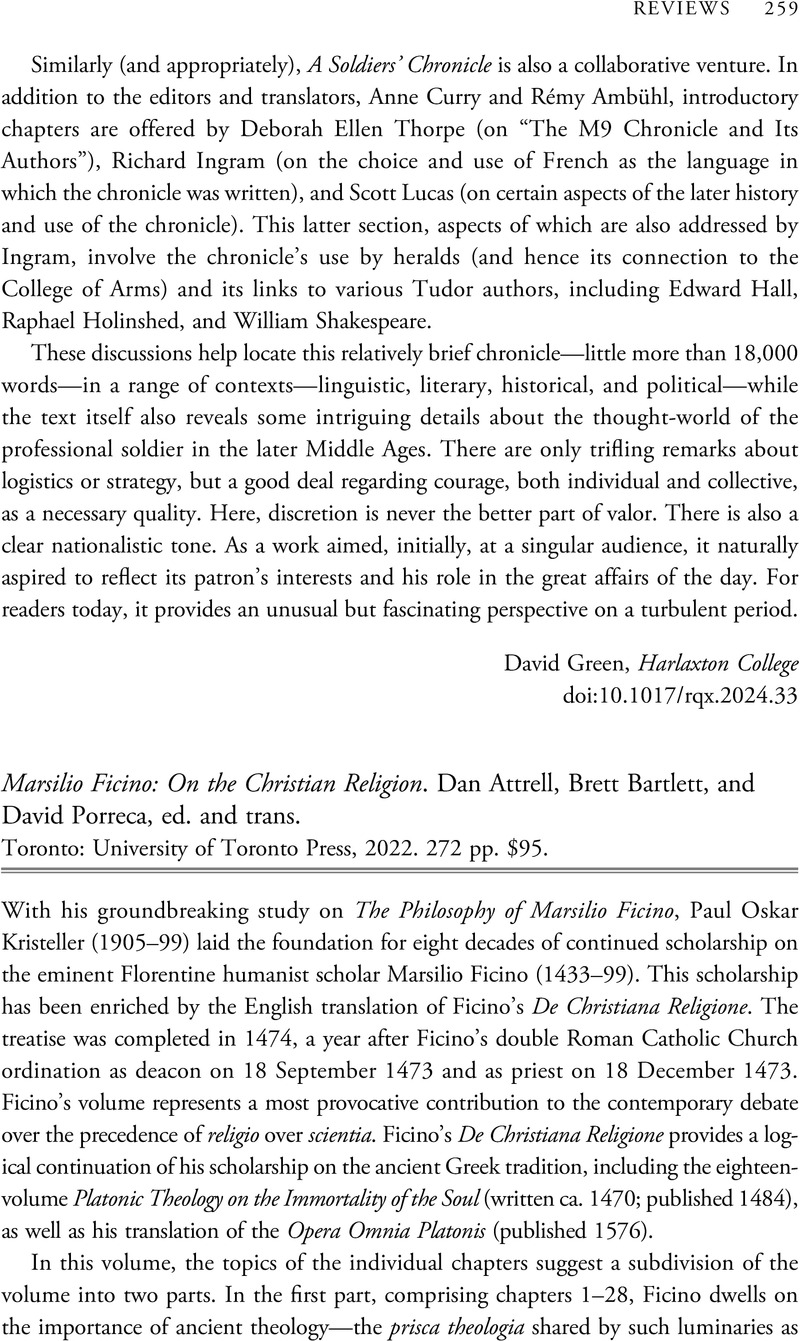No CrossRef data available.
Article contents
Marsilio Ficino: On the Christian Religion. Dan Attrell, Brett Bartlett, and David Porreca, ed. and trans. Toronto: University of Toronto Press, 2022. 272 pp. $95.
Review products
Marsilio Ficino: On the Christian Religion. Dan Attrell, Brett Bartlett, and David Porreca, ed. and trans. Toronto: University of Toronto Press, 2022. 272 pp. $95.
Published online by Cambridge University Press: 24 April 2024
Abstract
An abstract is not available for this content so a preview has been provided. Please use the Get access link above for information on how to access this content.

- Type
- Review
- Information
- Copyright
- Copyright © The Author(s), 2024. Published by Cambridge University Press on behalf of The Renaissance Society of America



